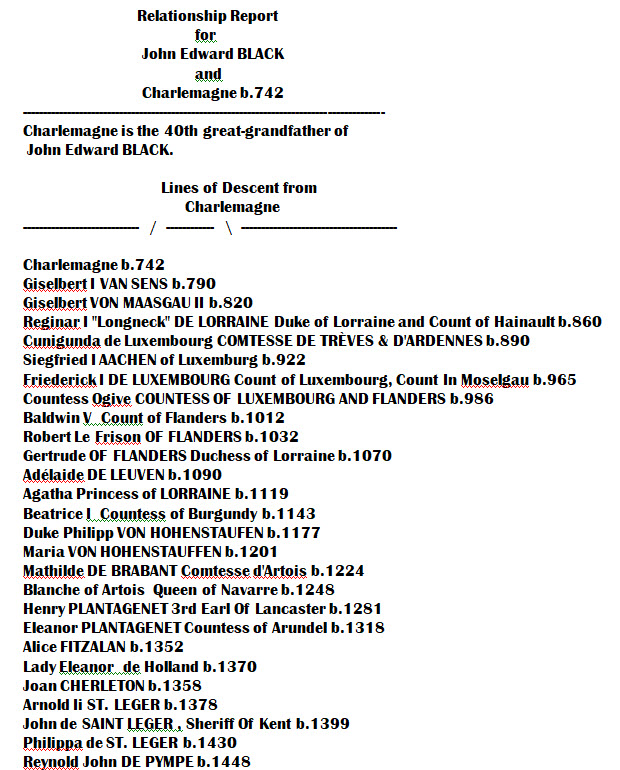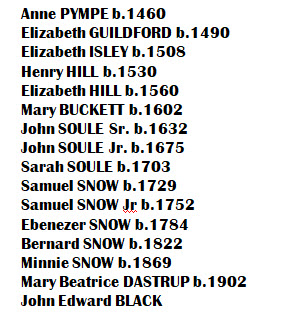Lineage – John Black to Charlemagne, “Charles the Great”
Charlemagne, also known as Charles I and Charles the Great, was born around 742 A.D., likely in what is now Belgium. Crowned King of the Franks in 768, Charlemagne expanded the Frankish kingdom, eventually establishing the Carolingian Empire. He was crowned Emperor in 800. Charlemagne’s empire united Western Europe for the first time since the fall of the Roman Empire, and sparked the Carolingian Renaissance.
After Pepin’s death in 768, the Frankish kingdom was divided between Charlemagne and his younger brother Carloman (751-771). The brothers had a strained relationship; however, with Carloman’s death in 771, Charlemagne became the sole ruler of the Franconians.
In addition to learning, Charlemagne was interested in athletic pursuits. Known to be highly energetic, he enjoyed hunting, horseback riding and swimming. Aachen held particular appeal for him due to its therapeutic warm springs.

